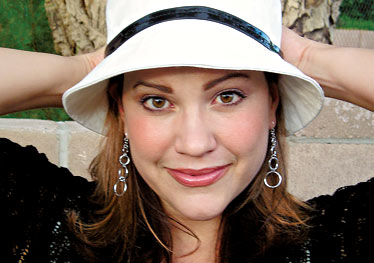For almost three decades, U.S. Latino fiction was a realm of magic realism, stuck somewhere among clichéd visions of grandmas, mangoes and the sea. Then in 2003 Alisa Valdes-Rodriguez put pen to paper and produced a hip, fast-paced novel about six young Latinas trying to get ahead at the office and in the bedroom. Call it chica lit. The six women of The Dirty Girls Social Club are smart, funny and, most important, professionals. They include a reporter, a rock star and a news anchor — none of whom ever gets absorbed in ponderous debates about the immigrant experience.
"I didn't want this to be 'Oh, here we are with our mantilla, praying to the Virgin of Guadalupe,'" says Valdes-Rodriguez, who is of Cuban-Irish descent. "That's not my reality." Born 36 years ago into a middle-class family in Albuquerque, N.M., she lives there now with her husband and young son. She has a master's degree in journalism from Columbia University and has worked as a reporter for the Los Angeles Times and the Boston Globe.
Valdes-Rodriguez's view of U.S. Latino life has found a diverse and willing audience. Dirty Girls has sold more than 350,000 copies and is in development to become a series on the Lifetime network next spring. Her second book, Playing with Boys, has sold 130,000 hardcover copies. Two more women's novels as well as two works of teen fiction are in the pipeline.
Since Dirty Girls made its debut, similar works by Latina authors, like Hot Tamara by Mary Castillo, have found their way into bookstores. Valdes-Rodriguez hesitates to take any credit. "These writers have always been there," she says. "It's just that the industry wasn't ready to publish them." They're ready now.
